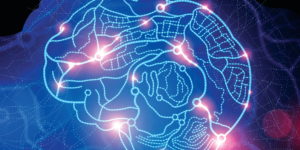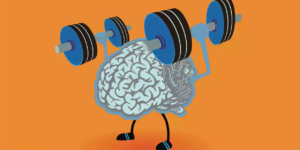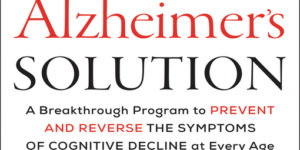Did you know that bacteria in our gastrointestinal tract can influence our cognitive function? In other words, what we eat and how it is digested can affect how well we think and remember! Research shows that our intestinal microbiome, which is comprised of over 100 trillion microbes (plus their genes), affects the brain. Studies of… Continue reading →
My New Book Is On Amazon!

I am thrilled to announce that my book, Brain SENSE: A Guide and Workbook to Keep Your Mind and Memory Sharp, is published and available on Amazon. https://www.amazon.com/dp/0578468735?ref_=pe_3052080_397514860 Have you ever asked… Why can I remember the lyrics to that song I haven’t heard in years, but not the name of the new neighbor I… Continue reading →
What’s Age Got to Do with It?

Ageism is defined as a systematic stereotyping of and discrimination against people because they are old, and it happens when people are defined not by their personality, individuality or beliefs but by their age. Ageist ideas also spring from cultural influences such as media, religion, family and society in general. Television… Continue reading →
Sitting versus Moving

What do researchers Aladdin Shadyab, Prabha Siddarth, and James Levine have in common? They all have found evidence for the benefits of walking and moving and the harm to our brains of being too sedentary. In Shadyab’s study, nearly 1500 women ages 64 to 95 who were part of the Women’s Health Initiative (WHI) were… Continue reading →
What is a SuperAger?

My mother-in-law just turned 89. She still lives alone in a ranch-style home in a gated community and was able to renew her drivers’ license, albeit without the privilege of driving at night. Other people her age are struggling with dementia. As people age, the variability in cognitive functions, especially memory, widens. A group of… Continue reading →
Cognitive Training Boosts Brain Health

As lifespan continues to increase, we need to find ways to enable our brain and its cognitive functions to remain healthy as we age in order to be able to continue to live independently. Research shows that age-related cognitive decline is common, even in the absence of dementia. A study published online in Cerebral Cortex… Continue reading →
Medications That Can Cause Memory Loss

In an article published by AARP in 2013, Dr. Armon B. Neel, Jr., author of Are Your Prescriptions Killing You, (https://www.amazon.com/Are-Your-Prescriptions-Killing-You-ebook/dp/B004T4KXA0\) wrote about ten types of medications that may result in memory loss in older adults. He stated that, though memory loss in older years usually results from Alzheimer’s or other forms of dementia, memory… Continue reading →
Why Odors Trigger Memories and Emotions

Have you ever noticed how smelling something- whether it is a flower, perfume, or something cooking or baking, perhaps- often results in your sudden recall of a prior experience? Odors are processed by the olfactory bulb inside the nose, which runs to the brain and is connected to the limbic system. The limbic system is… Continue reading →
Lifestyle Changes May Be the Way to Prevent Alzheimer’s

Cognitive impairment is one of the most frequent chronic conditions in older adults. In a 2014 study published by James et al. in Neurology, it was reported that Alzheimer’s disease is now the third leading cause of death in the U.S., following only cardiovascular disease and cancer. A 2-year trial, called the Finnish Geriatric Study… Continue reading →
Alzheimer’s – An Inflammatory Disease

One hallmark of Alzheimer’s disease is the presence of beta amyloid plaques and tau tangles in the brain, which cause neurons (brain cells) to die. However, some people, whose brain autopsies revealed the presence of these plaques and tangles, had had no cognitive decline while they were alive, because they had no inflammation. Recent research… Continue reading →